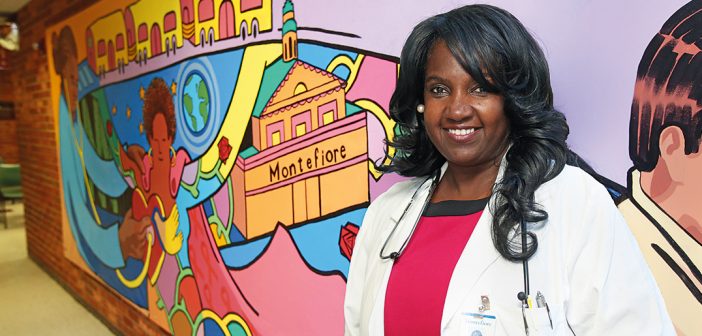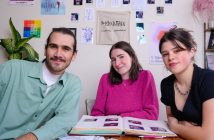You have been treating HIV and AIDS patients for more than 25 years. What was it like in the early days?
In my second job as a PA, I was working at Beth Israel in the chemical dependency unit. Our role was to detox patients but also address their medical problems. So, early ’80s, what are we seeing? Fevers. We’re asking, why are these lymph nodes enlarged? Why is this person short of breath? Little did we know, this was the only the beginning of the HIV epidemic.
And how has treatment changed?
In the old days, we would say that a CD4 count (T-cell count) below 200 was full-blown AIDS. But that doesn’t really mean anything anymore. With advances in treatment, patients can have the same lifespan as someone who is HIV negative. Now we are more concerned with what diseases they develop as they age, like bone disease, heart disease, liver disease, kidney disease, and cancers. They may happen sooner for people with HIV.
What impediments to treatment do you see for communities of color?
There are layers of challenging obstacles, including poor access to care, misinformation, stigma, and mistrust of the system. For HIV in particular, stigma is big. Also, sometimes people in communities of color don’t feel like they have a doctor, or they wait until they are symptomatic, when it’s often too late.
How do you help your patients advocate for themselves?
As I diagnose and treat them, I also educate them. So they know what medications they’re on. They know their CD4 and their viral load. When they see a specialist, they know how to be very assertive, and if they need to, they can call me. I can’t take anyone dismissing a patient.
You have said your mother inspired you to go into medicine. How?
My mother is my biggest inspiration. She had diabetes and hypertension and was often weak but remained strong and resilient for her children. She was always supporting and encouraging, no matter how badly she felt physically. I witnessed firsthand the impact of health disparities in my community during her illnesses and as I found my passion in medicine, I was by her side. She didn’t always take her medications, because of side effects and because she was busy raising seven children. And she didn’t always keep doctor’s appointments because she didn’t feel great. When she started going more regularly, the damage was done, in terms of her diet. She eventually succumbed to complications of stroke.
So is nutrition part of the community education you provide?
Yes, I’m a member of Harlem Docs, which provides nutrition workshops in conjunction with Harlem’s new Whole Foods. And I do a lot in terms of wellness and overall health, usually around HIV and AIDS. I also founded the Taylor/Moses Institute, a mentoring program for students interested in the health professions.
Tell me about your involvement with MOSAIC, Fordham’s new affinity group.
There used to be a black and Latino alumni association, but it died out. So a group of younger and older alumni got together to establish this new organization embracing the blended mosaic of all cultures and our shared Jesuit values. Right now I’m an unofficial co-chair. We’ve had some networking activities and we’re hoping to have more cultural events open to all alumni. At Homecoming, younger alumni were excited that there was a place they can give back and support Fordham’s mission.



